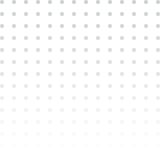Scraping to get data from other websites has become a mainstay in today’s business landscape. The increase in digitalization has made more companies create more digital assets to boost productivity and growth. Now, you can monitor a brand’s activity through its footprints online. That’s why web scraping remains an important aspect of the business world.
Open source scraping libraries makes it possible for businesses to engage in crawling data from the internet. As technology continue to evolve, there has been constant improvement on the technicalities of web scraping through its various frameworks. Open source scrapers are built to mainly cater for the different programming languages.
This article will dives into eight popular open source web scraping libraries and explore how you can take advantage of them to crawl data online.
1. Osmosis
The NodeJS-based web scraping open source library by Rchipka on Github, GitHub isn’t the only Javascript/NodeJS based open source web scraping library, but it’s one of the few that got into our list of five best open source web scraping libraries. That’s because it’s been proven to be one of the industry’s best. Below are the features of the Osmosis NodeJS library;
Features of Osmosis web scraping library:
- HTML parser
- Fast parsing
- Very fast searching
- Small memory footprint
- HTTP request features
- Logs urls, redirects, and errors
- Cookie jar and custom cookies/headers/user agent
- Form submission, session cookies
- Single proxy or multiple proxies and handles proxy failure
- Retries and redirect limits
- HTML DOM features of Osmosis
- Load and search ajax content
- DOM interaction and events
- Execute embedded and remote scripts
- Execute code in the DOM
Some other features of Osmosis are:
- Uses native libxml C bindings.
- Doesn’t have large dependencies like jQuery, cheerio, or jsdom
- Has support for CSS 3.0 and XPath 1.0 selector hybrids
- And a lot more
Complete documentation and examples for Osmosis can be found at Github here.
2. X-ray
As the developer Matthew Mueller puts it, X-ray is the next web scraper that sees through the <html> noise. X-ray is also a Javascript-based open-source web scraping library with flexibility and other features that make it appealing to most developers who choose it as their go-to choice for their web scraping project. Some of its features as an open-source web page scraper are:
- Flexible schema: X-ray has a flexible schema supporting strings, arrays, arrays of objects, and nested object structures.
- Composable: The X-ray API is completely composable, allowing you to have a great flexibility in how you scrape each webpage.
- Scrape per page-enabled: This API enables you to scrape per web page, which can be streamed to a file. You can set page limit and delay to achieve a more focused scraping and reduce errors.
- Predictable flow: Scraping with X-ray starts on one page and moves to the next easily. Well-predictable flow, following a breadth-first crawl through each of the web pages.
- Responsible: X-ray has support for concurrency, throttles, delays, timeouts and limits, This is to make your scraping responsible and well-controlled.
Check out X-ray on Github
3. Nokogiri
Nokogiri is the first Ruby-based library on our list of the eight best open-source web scraping libraries. According to the developers at Nokogiri.org, Nokogiri is an HTML, SAX, XML, and Reader parser capable of searching documents through XPath and CSS3 selectors.
Some of the many features of Nokogiri that have made it the choice for Ruby developers when it comes to building web scrapers are:
- XML/HTML DOM parser also handles broken HTML
- XML/HTML SAX parser
- XML/HTML Push parser
- XPath 1.0 and CSS3 support for document searching
- XML/HTML builder
- XSLT transformer
Check the Nokogiri website for full tutorial and documentation.
4. Scrapy
Scrapy is one of the most popular Python-based web scraping open-source libraries. If you’ve been doing anything web scraping, you should have heard about Scrapy at some point. It is the number one Python developer’s choice for web scraping, another reason it’s on our list of five best open-source web scraping libraries. With a large community this open-source web scraping library can be used to scrape through Python.
- Fast and powerful.
- Very big community.
- Ability to add new functions without having to touch the core.
- Portable, Scrapy is written in Python but can be carried and run on Linux, Windows, BSD(Unix)
- Sufficient documentation is found online.
With Scrapy, you should only be concerned with writing the rules for scraping, while Scrapy does the rest of the job for you. You can visit the Scrapy website and GIT to learn more about this framework.
5. Goutte
This open source web scraper is not as popular as the other ones because it’s PHP-based and requires a level of expertise in the programming language for easy use. You can use Goutte for both screen scrapingand web crawling
Features of Goutte
- Extracts data from HTML response.
- Extracts data from XML response.
- Nice API for web crawling.
- Compatible with multiple PHP versions.
For complete tutorials, documentation, and technical info, check out Goutte fork on GIT.
6. MechanicalSoup
This is another open source web scraping library that enable you to web scraping with PythonMechanicalSoup creates a human-touch through an intelligent framework built on Python’s Requests and BeautifulSoup libraries. Combining Requests for handling HTTP sessions and BeautifulSoup for effortlessly navigating website documents takes the best of both worlds. Its knack for handling tasks that mimic human behaviour on the web sets it apart.
What are the benefits of using MechanicalSoup for web scraping?
- Mimics human interaction: This tool simulates human behaviours to web scraping, enabling pauses and specific actions such as link clicks and accepting cookies during scraping.
- Speed: This tool is very efficient at extracting data from websites, especially when they have less dynamic content.
- CSS support: It is flexible in navigating web pages because of its support for CSS and even XPath selectors.
7. Jaunt
Jaunt is about making your web-related tasks faster, lighter, and incredibly efficient. Jaunt operates in Java and is purpose-built for web scraping, automation, and JSON querying. But what sets Jaunt apart from the rest?
Jaunt offers a speedy, ultra-light, and headless browser. However, it’s worth noting that Jaunt doesn’t support JavaScript.
Here’s why you might want to consider Jaunt as your open-source web scraping library:
- Individual HTTP Requests/Responses: Jaunt lets you process HTTP Requests and Responses on a granular level. This level of control is a game-changer for certain scraping tasks.
- Precise querying: Jaunt supports Regular Expressions (RegEx) for JSON or Document Object Model (DOM).
- Intuitive API: Jaunt simplifies your web scraping providing you with a friendly interface, especially when you are using REST API.
- Secure: This tool secures your connections with necessary authentication through HTTPS and HTTP.
8. Node-crawler
This library is popular with JavaScript and also synonymous with Node.js. One of Node-crawler’s standout features is its ability to swiftly select elements from the Document Object Model (DOM) without writing complex regular expressions. This streamlines the development process and enhances your efficiency.
Here are some advantages Node-crawler offers:
- Rate Control: Node-crawler lets you control your crawl rate, allowing you to adapt to different websites and scenarios.
- Flexibility: You can use Node-crawler to automate and assign tasks to URL requests while you focus on other activites. Also, you can configure the tool to your specific needs and have control in the crawling process.
How to Choose the Right Library
Each open source web scraper library has its strengths and downsides. Most times, your specific programming needs play a major role in what library to choose for your web scraping. We have compiled the pros and cons of each library to help you make the right decision:
| Library | Pros | Cons |
|---|---|---|
| Osmosis | Fast, efficient, ideal for large-scale scraping | Primarily for Java users, steeper learning curve |
| X-ray | Flexible schemas, composable API, pagination support | Primarily for Node.js, may require additional libraries for complex tasks |
| Nokogiri | Excellent HTML/XML parsing, XPath and CSS selectors, Ruby integration | Ruby-specific, less efficient for large-scale scraping |
| Scrapy | Powerful, fast, built for large-scale projects, excellent documentation | Steeper learning curve, primarily for Python users |
| Goutte | Simple, easy to use, ideal for small projects | Limited features compared to other libraries, PHP-specific |
| MechanicalSoup | Beginner-friendly, simulates a web browser, good for static websites | Not suitable for dynamic content or complex scraping tasks |
| Jaunt | Fast, supports multiple content types, handles JavaScript | Java-specific, less popular than other libraries |
| Node-crawler | Event-driven, good for JS developers, customizable | Requires knowledge of Node.js and asynchronous programming |
In essence, you can choose your library based on different reasons. To help you make an informed decision, we have further broken down the several scraping project needs:
Type of Website:
- Dynamic: Xray might require additional tools to optimal functioning. Jaunt handles JavaScript
- Static: You can use most open source libraries to scrape static sites
Programming Language:
- Python: MechanicalSoup and Scrapy can handle Python
- JavaScript: Xray and Node-crawler are geared for Node.js developers
- Java: Osmosis and Jaunt are good for Java
- Ruby: Nokogiri works perfectly
- PHP: Goutte is the primary tool for PHP websites.
Project specifics:
- Small: MechanicalSoup, Node-crawler and Goutte are well-suited for small scale projects
- Large: Osmosis, Scrapy and X-ray are good enough for your large projects
Beginners and non technical professionals:
- If you are new to web scraping, you can start with Node-crawler, Goutte or MechnicalSoup, as their fundamentals are easier to grasp.
Technical professionals
- Experienced developers can use any of Osmosis, X-ray and Scrapy to scrape the web.
- Scrapy, Osmosis, and X-ray offer more advanced features but require more expertise.
Flexibility:
- X-ray has flexible options that can be beneficial to your project.
Pair Crawlbase with your Open-source Scraping Library
You can pick any of the open source web scraping libraries based your needs for optimal performance. The good thing is that they all work with Crawlbase, so regardless of your language or library, you can use them without problems. You can use any of our products to meet your scraping needs. We cater to all kinds of project needs, be it small or large scale. Sign up now to enjoy 1000 free credits to start your scraping journey with Crawlbase.











